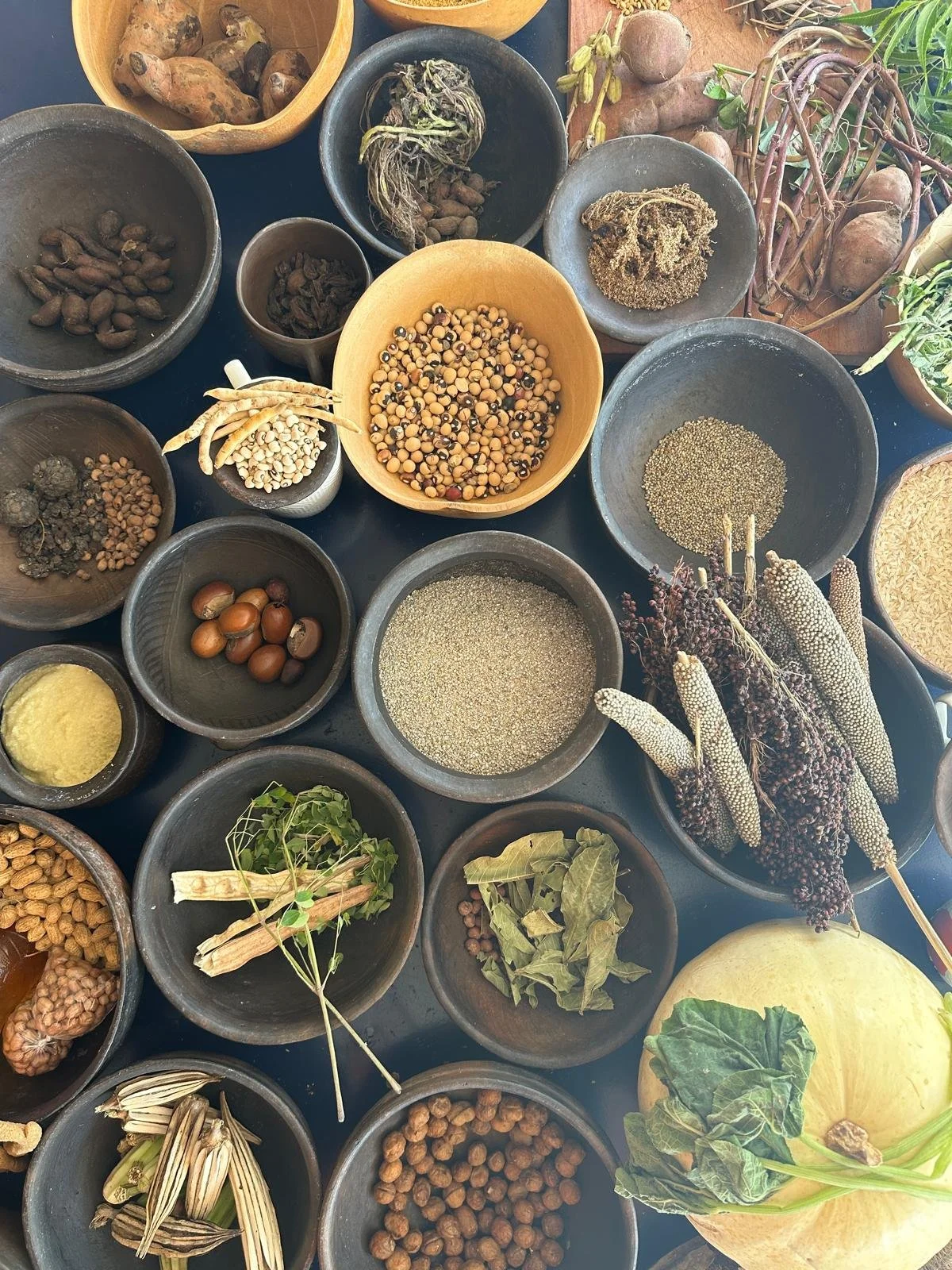Decolonize African Foods
Decolonizing African foods means examining the impact of colonialism on the African continent and its food systems and unpacking the worldview, perspective, language, description, histories, and stories on and about African food and farming systems. Decolonizing African foods involves African people centering their indigenous knowledge and traditional farming practices at the core of their food systems. Decolonizing African foods means African people returning to the origins of their ancestral food system. Now, it is essential to acknowledge that Africa is not a monolith, hence when referring to Africa, it is crucial to recognize the diverse ethnic groups that live within and across the various countries on the African continent and their food systems.
Colonialism is an ongoing process that prioritizes Western ideas, worldviews, policies, and practices as superior to Africa’s through policies, practices, language, and worldview, which has led to the marginalization of the traditional African food systems. The prioritization of Western foods can be seen in diets, and markets across the African continent. The prevailing Western understanding of good and healthy food dominates how African food is perceived in the global food and nutritional spaces. For instance, in culinary spaces what is understood as fine dining, the tools used as acceptable and appropriate in culinary spaces, and the foods deemed as presentable are all embedded in a Western way of seeing food. I often ask, who gatekeeps these culinary spaces? What stories shape the way these culinary spaces operate?
Indigenous Cooking Event at Kambusigo Community May 2024 by Trax and Beela Project
The current global food system has created and perpetuated an erasure of native African foods. The influx of foreign rice, wheat, and maize into many African countries continues to displace native grains like millet and sorghum which is not easily found in some local markets. The influx of imported foods, often unwanted foods or low-grade foods from other nations becomes cheaper in African markets while leading to the rising prices of locally grown foods. As fewer people patronize local grains, fewer farmers will grow local foods if there is no market for them, however, they may only grow local crops to consume at the household level.
Moreover, colonialism is also evident in the dominant narrative of the African continent as a “hungry” continent, as well as the kinds of investments that are made in food and agricultural policies. For instance, hunger is presented in the media as a natural phenomenon in Africa instead of putting it within the context of wars and exploitation of Africa’s natural resources. How does the civil war in Sudan impact their food systems? How does the ongoing conflict in the Democratic Republic of Congo affect their ability to save their Indigenous seeds, grow their foods, and even pass on local food recipes? The bigger question is who benefits from the instability across the African continent? And what is the relationship between conflict and food security?
Across many ethnic groups on the African continent, food systems were not based on extraction or exploitation but rather on living and working in collaboration with the land and the environment. What we now consider and promote as sustainable land practices was always the way of local life aligning with the traditional, religious, and communal belief systems of many ethnic groups. For instance, amongst the Nabt people in the Upper East Region of Ghana, in a traditional housing setup, there is an animal pen within the local housing structure, and animal manure is used as compost for the soil. As well, as building materials for local houses, especially cow manure. The farmers grew indigenous grains such as sorghum, millet, and local rice for consumption and also for funerals, burial, and other ceremonial practices. Food was not merely for consumption but extended to other areas of traditional living and religious practices. Hence, we cannot just import a Western lens on African foods, without understanding the differences in operating worldviews and relationships.
Taste of Bolga November 2024, photo by @eatwithAfia
A colonial lens on African foods demonizes palm trees without understanding the spiritual and medicinal importance to many ethnic groups in West Africa. The Western overproduction of palm trees is not Africa’s burden to carry, and an anti-capitalist analysis is needed on the monoculture of palm trees. A colonial lens on African foods places value on African foods when it is in grocery and health food stores in Western nations. A colonial lens on African foods is when others seek to take credit for centuries-old traditional foods that they added or removed an ingredient instead of honoring the long histories and traditions that preserved the food.
Decolonizing African foods means African people knowing, believing, living, and investing in their indigenous knowledge and farming systems that align with their culture, traditions, freedom, and sovereignty. Decolonizing African foods means eating foods produced locally, eating foods with our hands, eating our foods in calabash and clay bowls, and supporting our farmers to grow the foods they will consume in their households, and for their communities. Decolonizing African foods means paying attention to the existing power structures and imbalances at play within the food system, and naming who benefits from policies and practices that seek to extract and alienate African people away from sovereignty over their own food systems.

